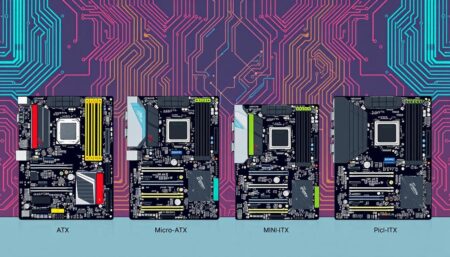If you’re using an old laptop, you might have noticed that it’s starting to slow down. Applications take longer to load, and multitasking can become a frustrating experience. At this point, you may be wondering what the best way of speeding up your old laptop is. Should you buy more RAM, or should you buy a new processor (CPU/GPU)? In this article, we will explore both options in detail and help you make an informed decision.
- Introduction In this section, we will briefly explain why an old laptop might become slow, and we’ll introduce the two options for speeding it up: buying more RAM and buying a new processor.
- Why is your old laptop slow? Before we discuss the two options for speeding up your old laptop, it’s important to understand why it’s become slow. There are several reasons why this might happen, including a full hard drive, outdated software, or too many programs running in the background.
- Buying more RAM One of the most common ways of speeding up an old laptop is by buying more RAM. In this section, we’ll explain what RAM is, how it works, and how much you should buy. We’ll also discuss the pros and cons of upgrading your RAM.
- Buying a new processor Another option for speeding up your old laptop is by buying a new processor. In this section, we’ll explain what a processor is, how it works, and how much you should spend. We’ll also discuss the pros and cons of upgrading your processor.
- Which option is best for you? Now that we’ve discussed both options in detail, it’s time to decide which one is best for you. In this section, we’ll compare buying more RAM to buying a new processor, and we’ll help you make an informed decision based on your specific needs.
- Other ways to speed up your old laptop In addition to buying more RAM or a new processor, there are several other ways you can speed up your old laptop. In this section, we’ll briefly discuss these options, including removing bloatware, cleaning up your hard drive, and upgrading to an SSD.
FAQs:
Q1. How do I know if I need more RAM or a new processor? A: If your laptop is slow when running multiple programs or large applications, you might need more RAM. If it’s slow when performing single tasks, you might need a new processor.
Q2. Can I upgrade both RAM and processor at the same time? A: Yes, you can upgrade both, but it might not always be cost-effective.
Q3. Is it difficult to install more RAM or a new processor? A: It depends on your laptop’s model and the hardware you’re upgrading. In most cases, it’s straightforward, but we recommend seeking professional help if you’re not sure.
Q4. Can upgrading RAM or processor damage my laptop? A: If done correctly, upgrading RAM or processor will not damage your laptop. However, if you’re not familiar with the process, we recommend seeking professional help.
Q5. How much RAM or processor do I need? A: The amount of RAM or processor you need depends on the applications you use and the tasks you perform. Check the system requirements of the software you use to get an idea of how much you need.
